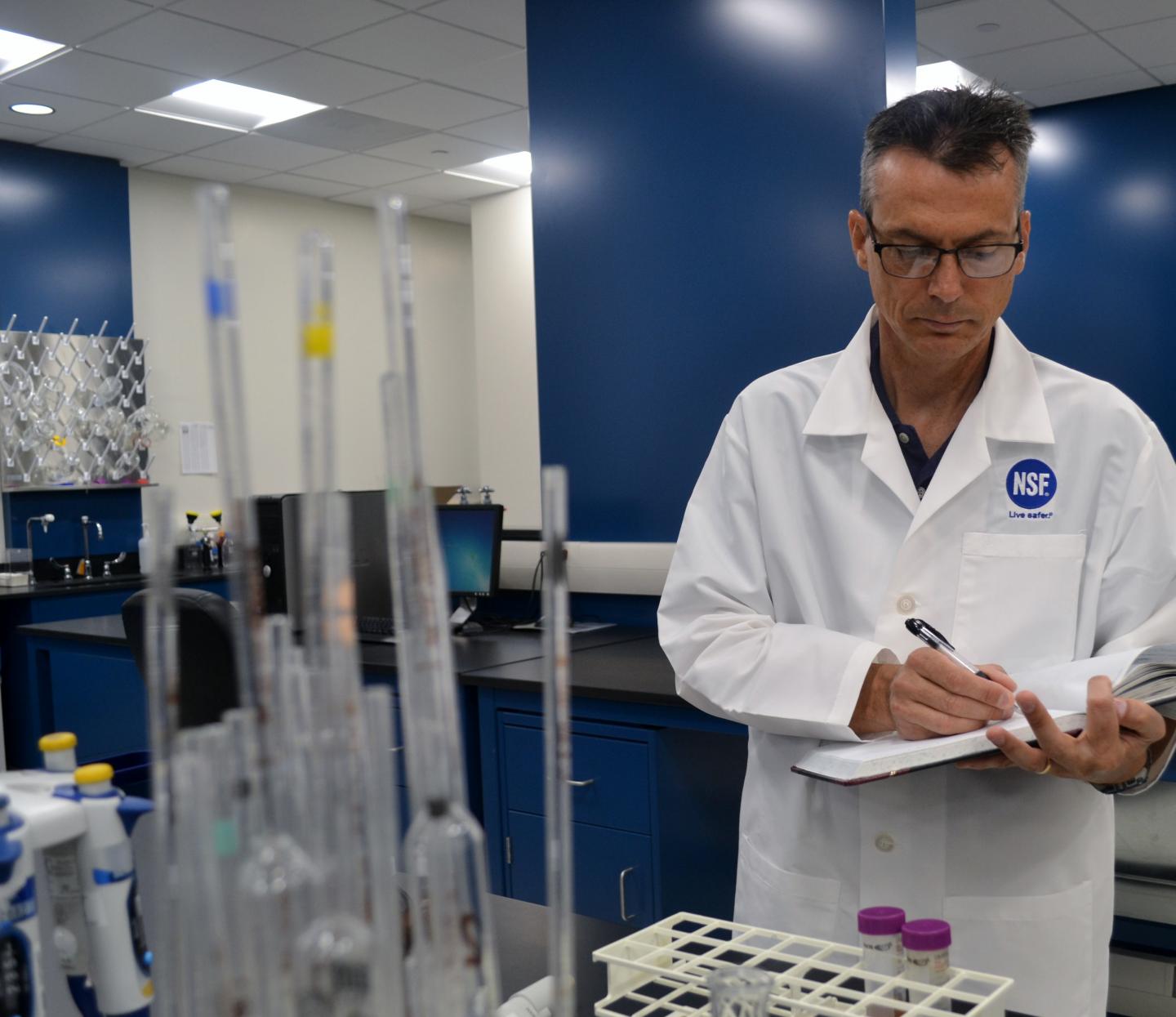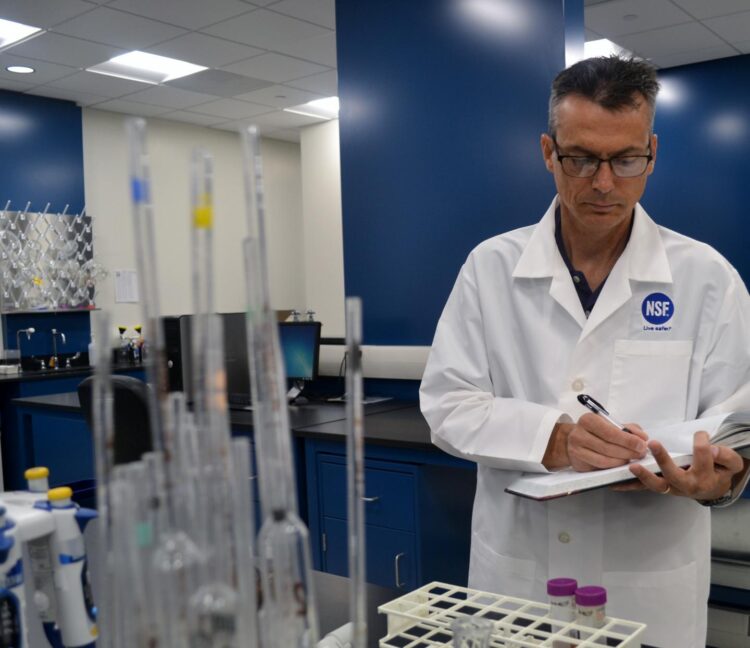Study finds hidden pharmaceutical cocktails never tested in humans in 17 supplement products available in the United States

Credit: NSF International
ANN ARBOR, Mich., (March 23, 2021) Researchers are urging consumers to avoid using weight loss or sports supplements that list deterenol as an ingredient. Scientists at NSF International (NSF), Harvard Medical School and Cambridge Health Alliance recently tested 17 brands of supplements listing deterenol as an ingredient and found nine potentially harmful, experimental stimulants in the products.
Researchers at the Netherlands’ National Institute for Public Health and the Environment (RIVM) and Belgium’s Sciensano also participated in the study.
Supplements containing deterenol have not been approved for use in humans in the United States and have been linked to reports of adverse events, including nausea, vomiting, sweating, agitation, palpitations, chest pain and cardiac arrest. The research was published in the peer-reviewed journal Clinical Toxicology (DOI: 10.1080/15563650.2021.1894333).
“We’re urging clinicians to remain alert to the possibility that patients may be inadvertently exposed to experimental stimulants when consuming weight loss and sports supplements,” said Dr. Pieter Cohen, Associate Professor of Medicine at Harvard Medical School, Internist at Cambridge Health Alliance and a co-author of the study. “We’re talking about active pharmaceutical stimulants that have not been approved by the U.S. FDA for oral use as either prescription medications or dietary supplements. These ingredients have no place in dietary supplements.”
In some cases, the tested supplements contained as many as four experimental stimulants per product. Combinations of these ingredients may pose health risks to consumers, as their safety is poorly understood.
“These hidden stimulant cocktails have never been tested in humans and their safety is unknown,” said John Travis, Senior Researcher at NSF International and co-author of the study. “You never want to find unlabeled ingredients in supplements, but it is especially concerning to find these strange brews of experimental stimulants in products that are readily available in the United States.”
The research points to the need for independent testing and certification of dietary supplements, a public health service that NSF provides. NSF facilitated development of the only American National Standard for dietary supplements (NSF/ANSI 173), which became the foundation of NSF’s accredited dietary supplement certification program in 2001 (ANSI-Accredited Product Certification Body – Accreditation #0216). To earn NSF certification, products are tested for product formulation, label claims and harmful levels of specific contaminants and potentially harmful ingredients. Additionally, NSF certified dietary supplements must be produced in a manufacturing facility that is inspected twice a year to comply with the U.S. FDA’s Good Manufacturing Practice (GMP) requirements.
Products certified under NSF’s Certified for Sport® program must meet additional requirements and are screened for 280 athletic banned substances. Many professional and elite sports associations and leagues recommend or require the use of Certified for Sport® products, including MLB, NHL, NFL, PGA, LPGA, CFL and the Canadian Centre for Ethics in Sport.
The study’s co-authors in The Netherlands and Belgium added: “If consumers feel unwell after taking a food supplement, they should immediately stop taking it ¬and seek medical advice,” urged Dr. Bastiaan Venhuis, senior researcher at RIVM and Celine Vanhee, senior researcher at Sciensano. “Clinicians can then send the food supplement to independent testing authorities in order to exactly pinpoint the cause of the adverse effect.”
###
Consumers with questions about NSF certified supplements can contact the NSF International consumer hotline at +1 800 673 8010 or email [email protected].
Media Contact
Thomas Frey, APR
[email protected]
Related Journal Article
http://dx.





